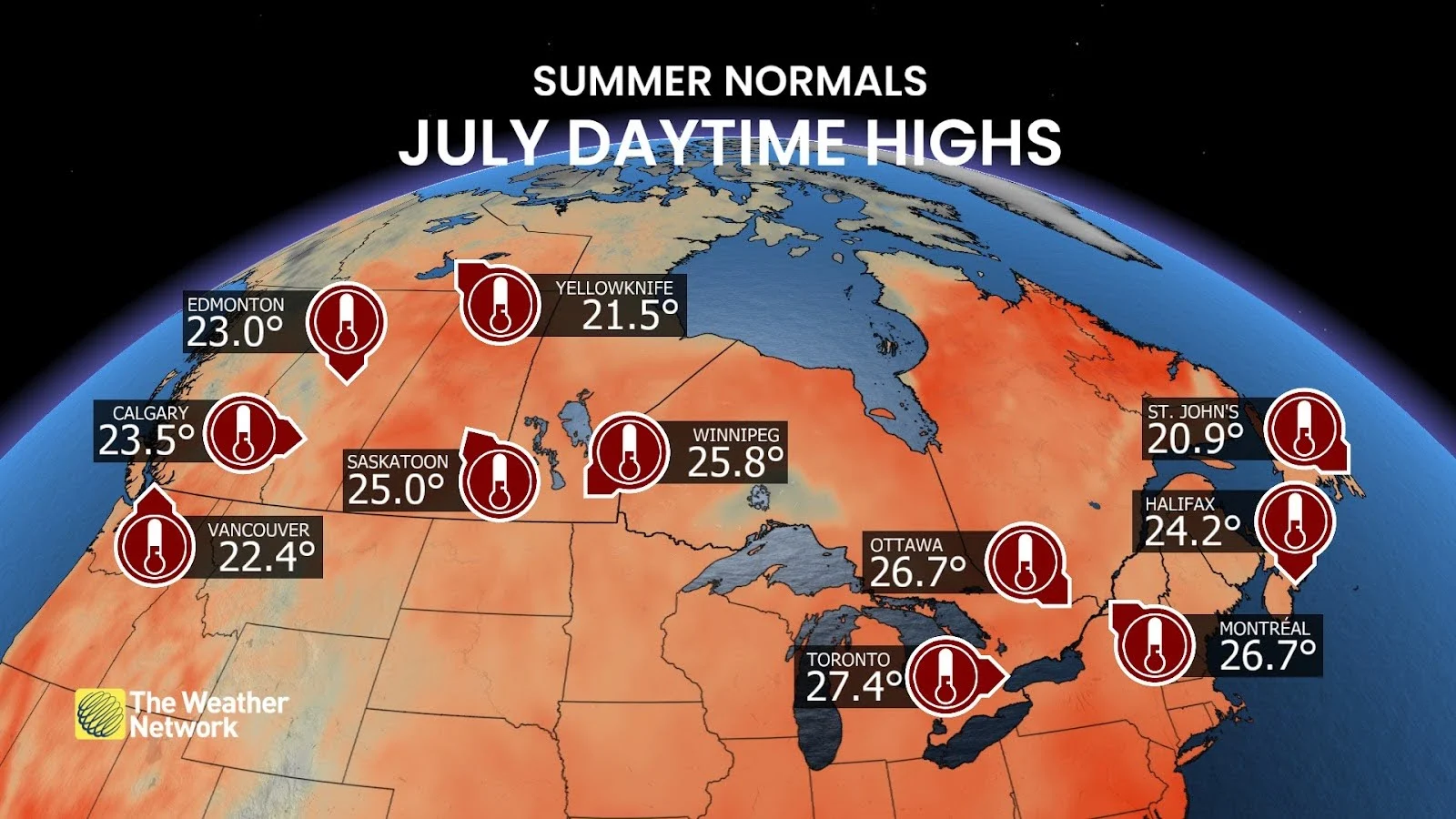
When is the hottest stretch of the year in your corner of Canada?
Here’s a look at when your corner of Canada typically achieves its peak summertime heat
Canada is a land of weather extremes, a country capable of hosting midwinter temperatures of -40°C with a complete flip toward 40°C or worse during the heart of summer.
As we sweat our way through the warm season, folks often wonder when exactly we reach the peak of summertime heat across the country.
Here’s a look at when your corner of Canada can typically expect its hottest temperatures of the year.
DON’T MISS: What’s the wettest month in your corner of Canada?
July is generally the hottest month of the year
The atmosphere doesn’t heat up right away with the arrival of the summer solstice in late June. It takes weeks of long and intense sunshine to influence weather patterns and crank up temperatures.

Average daytime highs reach their hottest point during the month of July for just about everybody across Canada.
It’s difficult to pick out a specific day as the hottest based on average temperatures. But every city in the country does experience a few days when average temperatures crest before they begin their long decline toward winter.
Warmest days of the year
And, as it turns out, most major cities across the country see their hottest average daytime high temperatures right around the same point of the year.
On average, Vancouver experiences its hottest stretch of the year around the first week of August.
Calgary and Edmonton see their average highs peak from the final days of July through the first week of August. The same goes for most cities on the Prairies, including Saskatoon, Regina, and Winnipeg.

MUST SEE: Why extreme heat is one of the world’s deadliest weather disasters
Folks across Ontario and Quebec tend to see their warmest average temperatures during the final two weeks of July.
Since records began at Toronto-Pearson Airport back in 1938, the hottest period of the year stretches from July 20 through July 25. Montreal’s warmest average readings occur right around the same time as those in Toronto.
Interestingly, the heat tends to hold off by a week across much of Atlantic Canada. While St. John’s peaks around the final week of July, it’s the first week of August that largely features the year’s highest average daytime temperatures in cities like Saint John and Halifax.
Extreme heat is an ever-present danger during the summer months regardless of climatology. Canada's hottest-ever temperature of 49.6°C occurred in Lytton, B.C., in June 2021. Toronto's all-time high temperature occurred in late-August 1948.
Never underestimate the dangers posed by heat—extreme temperatures can affect everyone, even those who are otherwise healthy.
Header image created using graphics and imagery from Canva.
